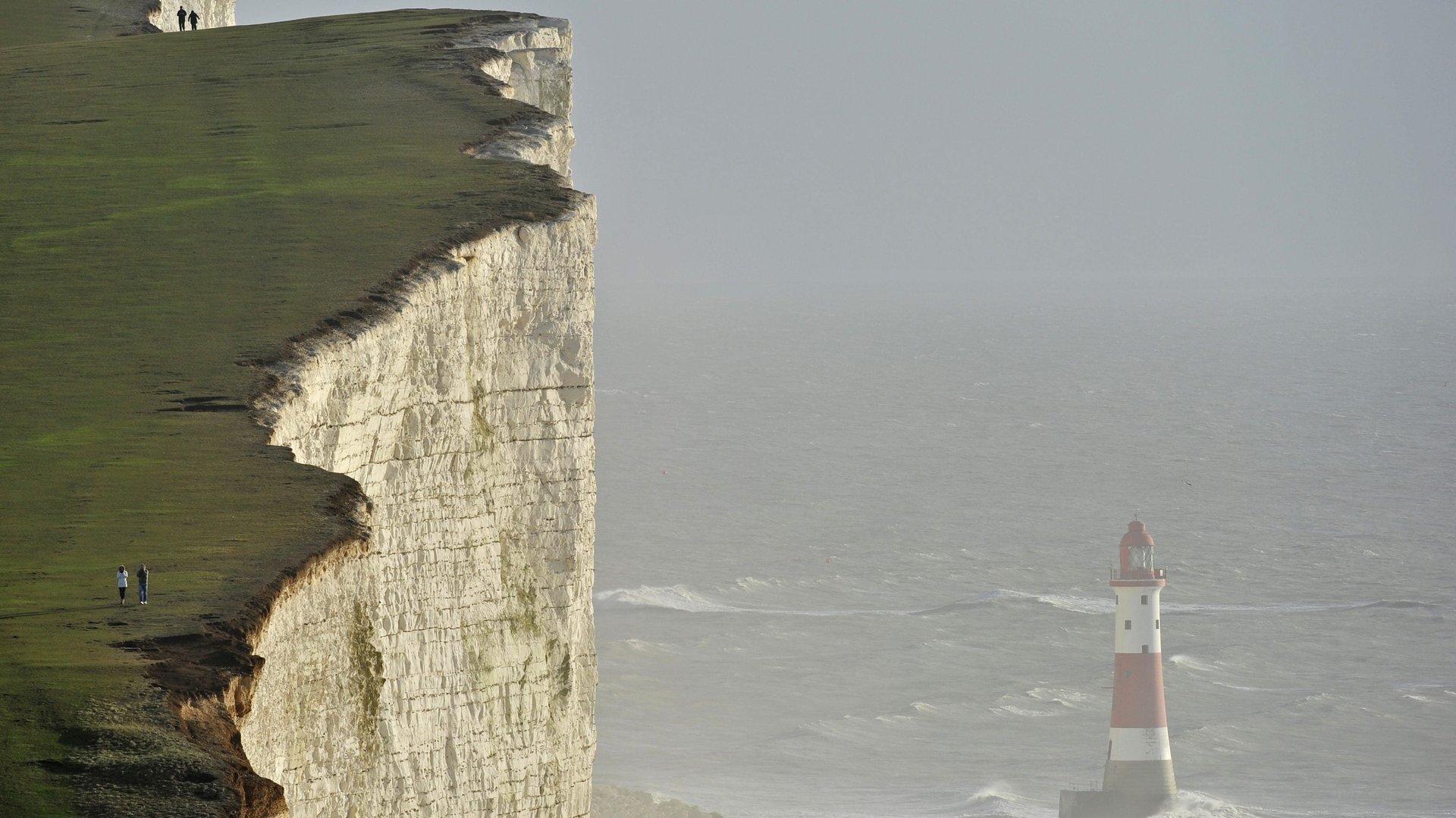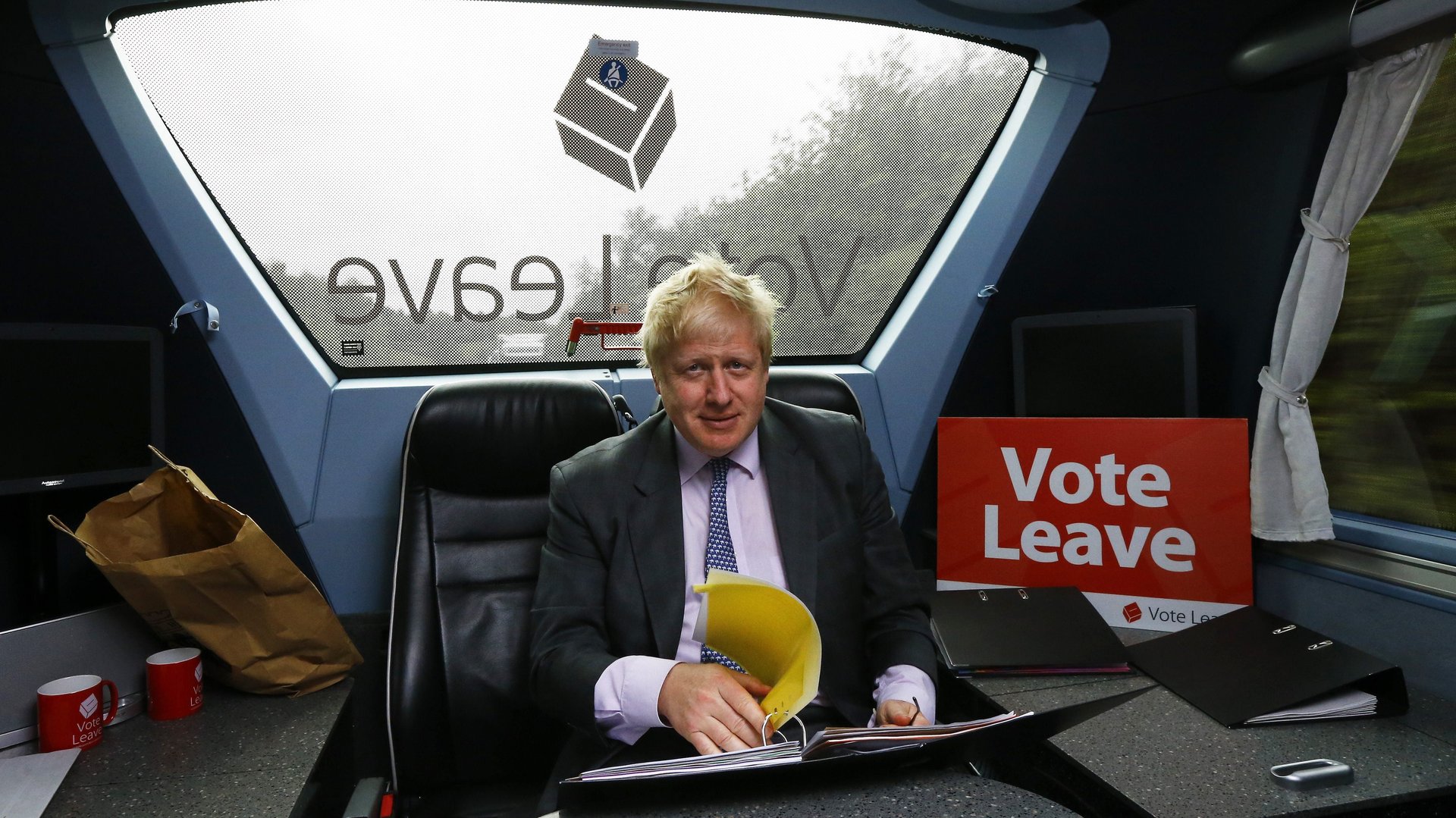Brexiters and Bremainers take to the street to argue over Britain’s future in the EU
More than 1,000 rallies across the UK are planned today to educate, cajole, and convince voters ahead of next month’s referendum on membership in the European Union, which could force parliament to withdraw from the regional political bloc.


More than 1,000 rallies across the UK are planned today to educate, cajole, and convince voters ahead of next month’s referendum on membership in the European Union, which could force parliament to withdraw from the regional political bloc.
British prime minister David Cameron unveiled a new campaign poster in Oxfordshire that put the cost of leaving the EU at £4,300 ($6,174) for the average British household. That figure comes from a UK treasury study published last month. In discussing the study’s findings, the chancellor, George Osborne, said leaving the EU would leave the UK “permanently poorer.”
In the “Brexit” camp, former mayor of London Boris Johnson is riding the Vote Leave campaign’s bright red “Battle Bus,” which will deliver him to England’s southwest for an afternoon of campaigning. A few days ago, Johnson set out the “liberal, cosmopolitan” argument to leave, saying that such a move represented a “great project of European liberalism,” compared to the “ancient regime” represented by Brussels.

Jeremy Corbyn, the leader of the opposition Labour party, is also on the streets today, making his views on the referendum known. He is in the “Bremain” camp, and plans to make a speech arguing that it’s the ruling Conservative party, not the EU, that is the problem.
The other campaign group pushing for Brexit is UKIP leader Nigel Farage’s Grassroots Out. One of the group’s backers, former secretary of state for Northern Ireland Owen Paterson, plans to tell his supporters today that the UK has become a “colony of an EU superstate.”
The debate over whether to remain or leave the EU has ranged over diverse ground in recent days. Rival camps of historians are parsing Britain’s national character—for example, does the nation have an exceptionally “mild” political temper compared to the rest of the EU, thus demanding a distinctive relationship with the EU?
The IMF and World Bank have added their voices to the chatter, with IMF head Christine Lagarde calling Brexit “pretty bad to very, very, bad.” And, perhaps more tangibly to the average voter, Brexit could lead to drastic changes in the world’s most popular soccer league.
Even ABBA singer Björn Ulvaeus, a Swede who has lived in the UK for six years, came out to oppose Brexit. Perhaps he fears that too many Britons have been playing a version of this old tune:
Breaking up is never easy, I know